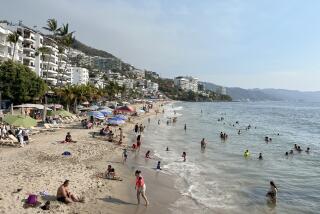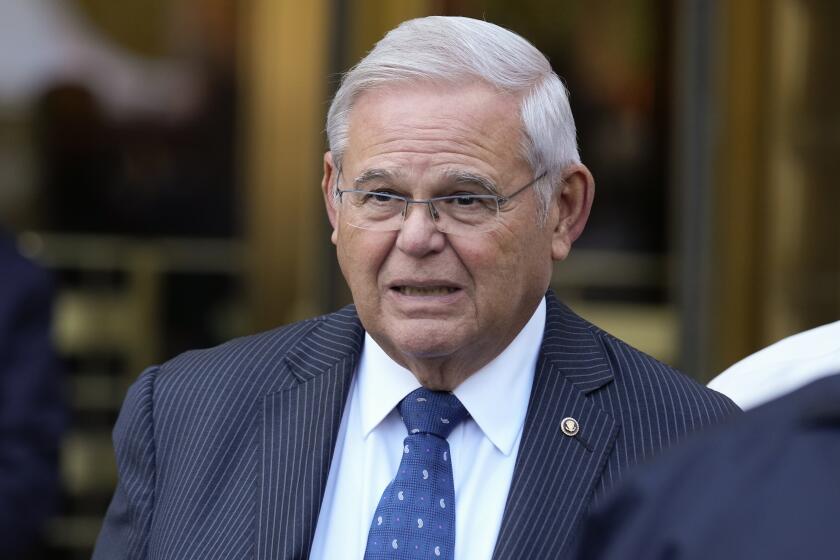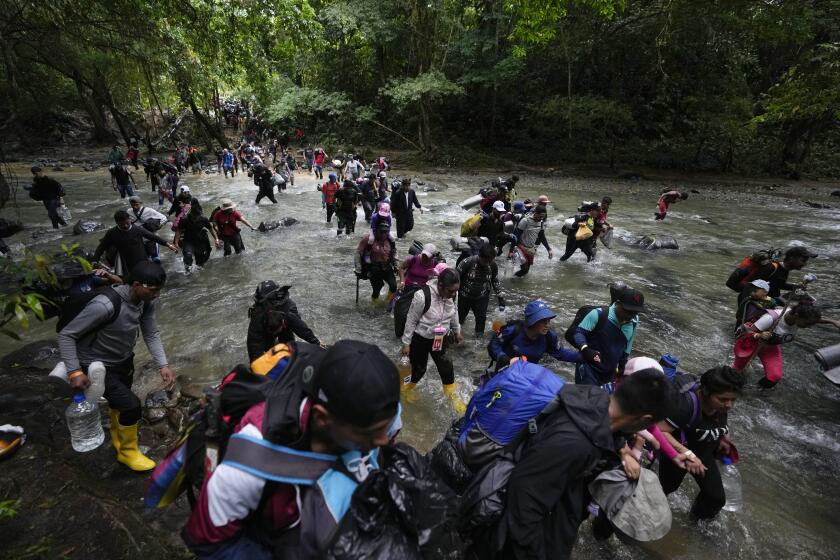Astounding, If Not Yet Enough : South Africa: De Klerk recognizes the failure of apartheid. Credit what he has done, but the struggle goes on.
South Africa is standing on the threshold of a new era after the opening address of the state president, Frederik W. de Klerk, to Parliament Friday.
Apartheid, the system of legalized racism introduced in the late 1940s, which we have long condemned as being as evil as Nazism or Stalinist communism, has outlasted even the repressive regimes of Eastern Europe dating from the same era.
Now De Klerk faces the challenge that confronted the leaders of Eastern Europe last year: He must move quickly to dismantle apartheid completely and allow the emergence of government for the people, by the people.
De Klerk’s speech has not met all the demands that the disenfranchised have made of his government, but we must give him credit for those he has met.
Personally, I was astounded at some of his announcements and I am thrilled at the confirmation that the South African government is committed to releasing Nelson Mandela, the South African leader who has become a legend in his lifetime.
When I and two other church leaders, Dr. Frank Chikane, general secretary of the South African Council of Churches, and Dr. Allan Boesak, president of the World Alliance of Reformed Churches, held discussions with De Klerk in Pretoria last October, we called on him to take the following immediate steps:
--Lift the nationwide state of emergency. He has not done this, although he says he will “as soon as circumstances justify it.”
--Lift restriction orders imposed on political activists. He appears to have gone a considerable way toward doing this.
--Release all people detained without trial. He has not met this demand, but has set a limit on the period of detention without trial.
--Lift restrictions on the activities of political and other organizations. He has done this, most importantly by unbanning the two longest-established liberation movements, the African National Congress and the Pan Africanist Congress.
--Release all political prisoners. He has not done this, although he says people jailed simply because organizations they supported were banned will be released. He has, of course, released key ANC and PAC leaders, and we hope Mandela will be free within days or weeks.
--Grant reprieves for all those sentenced to death, and declare a moratorium on the imposition of the death penalty. He has not met this demand, but has suspended the imposition of the death penalty pending changes in the law that can be expected to reduce the number of death sentences handed down by the courts.
We also called on him to take various other steps within six months of that meeting, only one of which he has met: the scrapping of the Separate Amenities Act, which allows for the segregation of public facilities.
We said that, if he took all the steps we were urging, we would reconsider our advocacy of sanctions. He has obviously not met them, but I nevertheless want to discuss the sanctions issue further with political organizations, other church leaders and the bishops of my church.
De Klerk now has implicitly recognized that apartheid has failed and that his government has no legitimacy among the majority of the country’s people.
This does not mean that our struggle is won. Far from it. Although De Klerk talks about granting a universal franchise, he is still talking about “minority rights” and volksregte (group rights), which implies that the white minority will still have the power to veto government decisions.
Because of racism, members of the government have no true understanding of the forces at work among most of the people in our country. Suspicion and mistrust thus dominate their interaction with us.
In this situation, De Klerk may have enormous military power at his command. But if we distinguish influence from power, Mandela wields more authority.
This is why it is imperative--for stability and for orderly change in South Africa--that Mandela be released quickly, and released in circumstances in which he retains both his credibility and authority, and can maintain a negotiating relationship with the government.
Mandela holds the key to South Africa’s future. In fact, for two reasons he has a better chance of leading the country away from disaster than does De Klerk.
First, our country is fragmented and torn apart, and not just between black and white. Even in the black community we fight each other. Mandela seems to have the ability to relate to a very wide range of people without compromising the most important parts of his own creed. He is perhaps the only hope we have for uniting the disparate elements of those committed to real democracy.
Second, Mandela has demonstrated a capacity for letting whites know that there is a place for them in the sun in South Africa, that despite all they have done to us, our people ultimately are a forgiving people.
More to Read
Start your day right
Sign up for Essential California for news, features and recommendations from the L.A. Times and beyond in your inbox six days a week.
You may occasionally receive promotional content from the Los Angeles Times.






